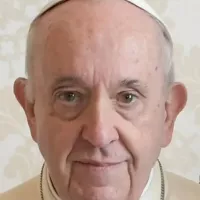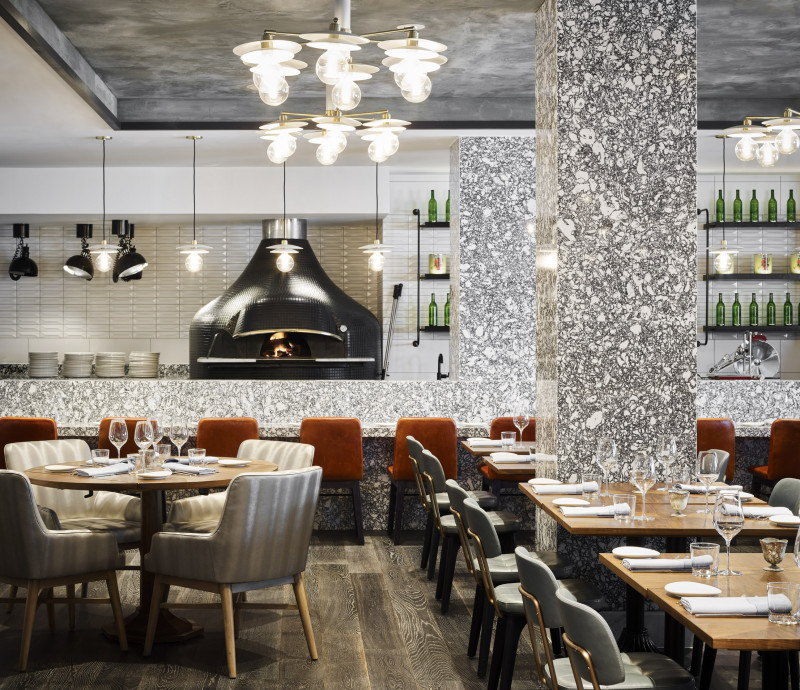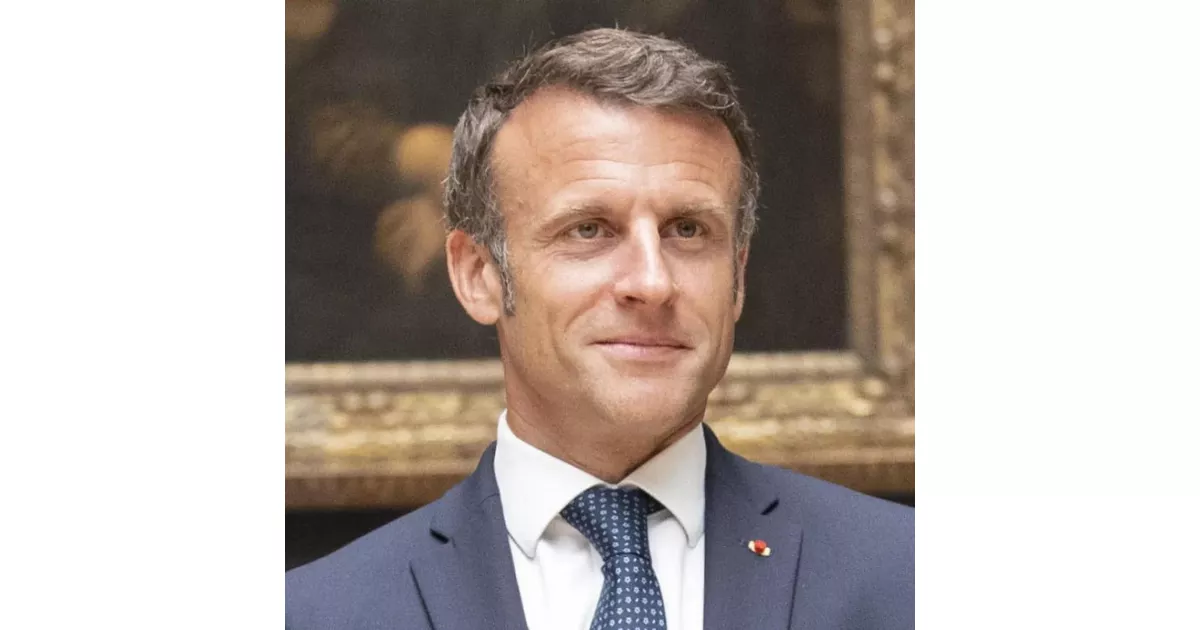Emmanuel Macron is the current President of France and Co-Prince of Andorra, assuming office in 2017. Prior to his presidency, he served as Minister of the Economy, Industry, and Digital Affairs from 2014 to 2016 under President François Hollande. In 2016, Macron founded the political party Renaissance, of which he is a member. His political career has marked him as a significant figure in contemporary French and European politics.
December 1977: Born into last cohort for mandatory military service
Born in December 1977, Macron belonged to the last cohort for whom military service was mandatory in France.
December 1977: Emmanuel Macron's Birth
In December 1977, Emmanuel Jean-Michel Frédéric Macron was born.
1979: Birth of brother Laurent
In 1979, Macron's brother Laurent was born.
1982: Birth of sister Estelle
In 1982, Macron's sister Estelle was born.
1998: Worked for the Citizens' Movement
Beginning in 1998, Macron worked for the Citizens' Movement for two years.
1999: Editorial Assistant for Paul Ricoeur
Around 1999, Macron worked as an editorial assistant to Paul Ricoeur, the French Protestant philosopher, on his last major work, La Mémoire, l'Histoire, l'Oubli.
2004: Inspector in the Inspection générale des finances
After graduating from ENA in 2004, Macron became an Inspector in the Inspection générale des finances (IGF).
2004: Graduation from École nationale d'administration
In 2004, Emmanuel Macron graduated from the École nationale d'administration.
2006: Socialist Party Membership
Emmanuel Macron was a member of the Socialist Party between 2006 and 2009.
2006: Job Offer from Mouvement des Entreprises de France Declined
In 2006, Laurence Parisot offered Macron the job of managing director for Mouvement des Entreprises de France, but he declined.
2006: Met François Hollande
In 2006, Macron met François Hollande through Jean-Pierre Jouyet.
2006: Joined the Socialist Party
Macron joined the Socialist Party at the age of 24, but last renewed his membership for the period 2006–2009.
August 2007: Appointed Deputy Rapporteur
In August 2007, Macron was appointed deputy rapporteur for Jacques Attali's "Commission to Unleash French Growth".
2007: Failed National Assembly Run
In 2007, Macron attempted to run for a seat in the National Assembly in Picardy under the Socialist Party label, but his application was declined.
September 2008: Macron Leaves Government
In September 2008, Macron left his job as an Inspector of Finances and took a position at Rothschild & Cie Banque.
2008: Macron buys out government contract
In 2008, Macron paid €50,000 to buy himself out of his government contract and became an investment banker at Rothschild & Cie Banque.
2009: Socialist Party Membership
Emmanuel Macron was a member of the Socialist Party between 2006 and 2009.
March 2010: Appointment to the Attali Commission
In March 2010, Macron was appointed to the Attali Commission as a member.
December 2010: Earnings
Between December 2010 and May 2012, Macron reported that he had earned €2 million.
2010: Joined Hollande's staff
In 2010, Macron joined François Hollande's staff.
2010: Promotion to Partner and Key Deals
In 2010, Macron was promoted to partner with Rothschild & Cie Banque after working on the recapitalization of Le Monde and the acquisition by Atos of Siemens IT Solutions and Services. He was also put in charge of Nestlé's acquisition of Pfizer's infant nutrition division for €9 billion.
2010: Parents' Divorce
In 2010, Macron's parents, Françoise Macron (née Noguès) and Jean-Michel Macron, divorced.
February 2012: Advising Philippe Tillous-Borde
In February 2012, Macron advised businessman Philippe Tillous-Borde, the CEO of the Avril Group.
May 2012: Earnings
Between December 2010 and May 2012, Macron reported that he had earned €2 million.
May 2012: Appointed Deputy Secretary-General of the Élysée
On 15 May 2012, Macron became the deputy secretary-general of the Élysée.
2012: Proposal to increase work week
During the summer of 2012, Macron put forward a proposal that would increase the 35-hour work week to 37 hours until 2014. Hollande refused Macron's proposals.
2012: Appointed Élysée deputy secretary-general
Following the 2012 presidential election, Macron was appointed as Élysée deputy secretary-general by President Hollande.
2013: Vote against regulating CEO salaries
In 2013, Macron was one of the deciding votes against regulating the salaries of CEOs.
June 2014: Resignation as deputy secretary-general of the Élysée
On 10 June 2014, Macron resigned from his role as deputy secretary-general of the Élysée.
August 2014: Appointment as Minister of Economics and Finance
On 26 August 2014, Macron was appointed as the Minister of Economics and Finance in the Second Valls government, replacing Arnaud Montebourg.
2014: Proposal to increase work week
During the summer of 2012, Macron put forward a proposal that would increase the 35-hour work week to 37 hours until 2014. Hollande refused Macron's proposals.
2014: Macron Becomes Minister of Economics and Finance
In 2014, Macron became the Minister of Economics and Finance under President François Hollande.
2014: Appointed as Economics Minister
In 2014, Macron was appointed as Economics Minister in the second Valls government.
2014: Declined candidacy in municipal elections
Offered a chance to be a candidate in the municipal elections in 2014 in his hometown of Amiens, Macron declined.
February 2015: Macron's law package pushed through parliament
On 17 February 2015, prime minister Manuel Valls pushed Macron's signature law package through a reluctant parliament using the special 49.3 procedure.
March 2015: First Public Appearance
In March 2015, Macron first became known to the French public after his appearance on the French TV programme "Des Paroles Et Des Actes". He gave his first speech in Val-de-Marne and threatened to leave Manuel Valls' second government.
April 2015: Adoption of the Macron law
On 10 April 2015, the Macron law was adopted using the 49.3 procedure, which included measures liberalizing laws prohibiting work on Sunday and at night, and simplifying government procedures.
August 2015: Declared Independence from Socialist Party
In August 2015, Macron declared that he was no longer a member of the Socialist Party and was an independent.
April 2016: Macron Considers Running for President
In April 2016, Macron first announced that he was considering running for president by forming En Marche.
April 2016: Macron founded En Marche
In April 2016, amid tensions with the current government, Emmanuel Macron founded En Marche, an independent political party, in Amiens. This social-liberal, progressive movement garnered significant media attention, leading to reprimands from President Hollande and questions about Macron's loyalty. While some MEPs supported the movement, most of the Socialist Party opposed En Marche.
May 2016: Macron at Joan of Arc Festival and Declaration
In May 2016, Orleans mayor Olivier Carré invited Macron to the festival commemorating the 587th anniversary of Joan of Arc's efforts during the Siege of Orléans. LCI reported that Macron was trying to take back the symbol of Joan of Arc from the far-right. Macron later went to Puy du Fou and declared he was "not a socialist" in a speech amid rumours he was going to leave the current government.
June 2016: Growing Media Support for Macron and En Marche
In June 2016, support for Macron and his movement, En Marche, began to grow in the media. Libération reported that L'Express, Les Échos, Le 1 [fr], and L'Opinion had begun to support him. Following controversies surrounding trade unionists and their protests, Acrimed [fr] reported that major newspapers began to run front-page stories about Macron and En Marche. Criticized by both the far-left and the far-right, these pro-Macron influencers in the press were dubbed "Macronites".
August 2016: Macron Resigns from Government
On 30 August 2016, Macron resigned from the government ahead of the 2017 presidential election to devote himself to his En Marche movement. Tensions had been rising, and he had reportedly wanted to leave the Valls government since early 2015. Michel Sapin was announced as Macron's replacement. An IFOP poll showed that 84% of those surveyed agreed with his decision to resign.
October 2016: Macron Criticizes Hollande's Presidency
In October 2016, Macron criticized Hollande's goal of being a "normal" president, stating that France needed a more "Jupiterian presidency".
November 2016: Macron Declares Candidacy for French Presidency
On 16 November 2016, Macron formally declared his candidacy for the French presidency, calling for a "democratic revolution" and promising to "unblock France".
November 2016: Publication of Macron's Book Révolution
On 24 November 2016, Macron's book "Révolution" was published.
December 2016: Révolution Reaches Best-Seller List
In December 2016, Macron's book "Révolution" reached fifth position on the French best-seller list.
December 2016: Macron's Campaign Fundraising and Criticism
In December 2016, Macron's campaign announced it had raised 3.7 million euros in donations. However, Macron faced criticism regarding his donors and alleged conflicts of interest due to his time at Rothschilds. He was also accused of using funds for dinners and meetings with media and popular culture figures while at Bercy, allegations he dismissed as defamatory.
2016: Macron Founds Renaissance
In 2016, Macron founded the Renaissance party.
2016: Resignation to launch presidential campaign
In 2016, Macron resigned from his position as Economics Minister to launch his 2017 presidential campaign.
March 2017: Cybersecurity Firm Report on Phishing Attacks
In March 2017, Macron's campaign received a report from Trend Micro, a Japanese cyber security firm, detailing how En Marche had been targeted by phishing attacks. Trend Micro attributed these attacks to the Russian hacking group Fancy Bear.
March 2017: Accusations of Russian Interference in Macron's Campaign
In March 2017, Macron's digital campaign manager, Mounir Mahjoubi, stated that Russia was behind "high level attacks" on Macron, accusing RT (formerly known as Russia Today) and Sputnik News of spreading false information about the candidate.
April 2017: Macron Receives Most Votes in First Round of Election
On 23 April 2017, Macron received the most votes in the first round of the presidential election, with more than 8 million votes (24%). He then faced Marine Le Pen in the second round, gaining the support of former candidates François Fillon and Benoît Hamon and the sitting president François Hollande.
May 2017: Elected President of France
In May 2017, Macron was elected President of France, defeating Marine Le Pen.
May 2017: Debate Between Macron and Le Pen
On 3 May 2017, a debate was held between Macron and Le Pen. The two-hour debate was perceived by opinion polls as a victory for Macron.
July 2017: WikiLeaks Release of Macron's Campaign Emails
In July 2017, WikiLeaks released 21,075 verified emails and another 50,773 unverified emails from Macron's campaign. This followed Le Pen's accusations of tax avoidance.
July 2017: National Assembly Passes Part of Macron's Law to Stop Mass Corruption
In July 2017, in response to Penelopegate, the National Assembly passed a part of Macron's proposed law to stop mass corruption in French politics by banning elected representatives from hiring family members.
July 2017: Senate Approves Anti-Terror Laws Bill
In July 2017, the Senate approved its first reading of a controversial bill with stricter anti-terror laws, a campaign pledge of Macron.
July 2017: Resignation of Pierre de Villiers
On 19 July 2017, Pierre de Villiers, then-Chief of the General Staff of the Armies, stepped down following a confrontation with Macron. De Villiers cited the military budget cut of €850 million as the main reason for his resignation. Macron named François Lecointre as De Villiers' replacement.
2017: Presidential Campaign
In 2017, Macron launched his presidential campaign.
2018: Yellow Vests Protests
From 2018 to 2020, Macron faced increasing protests against his reforms, culminating in the yellow vests protests and the pension reform strike.
2020: France's Response to COVID-19 Pandemic
From 2020, Macron led France's response to the COVID-19 pandemic and subsequent recession.
2022: Re-elected as President
In 2022, Macron was elected to a second term in the presidential election, defeating Marine Le Pen.
2023: Pension Reform Strikes and Protests
In 2023, legislation raising the retirement age from 62 to 64 led to public sector strikes and violent protests.
2024: Appointment of Gabriel Attal as Prime Minister
In 2024, Macron appointed Gabriel Attal as Prime Minister after a government crisis.
September 2025: Appointment of Sébastien Lecornu as Prime Minister
In September 2025, Macron appointed Sébastien Lecornu as Prime Minister after Bayrou was brought down by a confidence vote. Lecornu resigned less than a month later following political backlash over the composition of his government, but was reappointed by Macron shortly afterwards.
Mentioned in this timeline

Donald John Trump is an American politician media personality and...

Vladimir Vladimirovich Putin is a Russian politician and former intelligence...

Pope Francis served as the head of the Catholic Church...
Ukraine is a country in Eastern Europe the second-largest on...

Elizabeth II reigned as Queen of the United Kingdom and...

Uber Technologies Inc is a multinational transportation company headquartered in...
Trending
2 hours ago Alaska Airlines Expands International Routes from St. Louis and Introduces New Spring Menus.

3 hours ago Mertens vs. Bouzkova: WTA Dubai 2026 Prediction, Odds, and Preview of the Match
3 hours ago Top Reliable Used Cars for Value in 2026: A Comprehensive Guide
4 hours ago Linda Noskova Advances in WTA Dubai: Predictions, Betting Odds, and Tournament Info
4 hours ago Bright Horizons (BFAM) Shares Plunge After Q4 Earnings Report: Market Analysis

4 hours ago Restaurants Prepare for Valentine's Day Amid Rising Costs and Special Dining Experiences.
Popular

Kid Rock born Robert James Ritchie is an American musician...
Randall Adam Fine is an American politician a Republican who...

Pam Bondi is an American attorney lobbyist and politician currently...

Barack Obama the th U S President - was the...
The Winter Olympic Games a major international multi-sport event held...

XXXTentacion born Jahseh Dwayne Ricardo Onfroy was a controversial yet...

